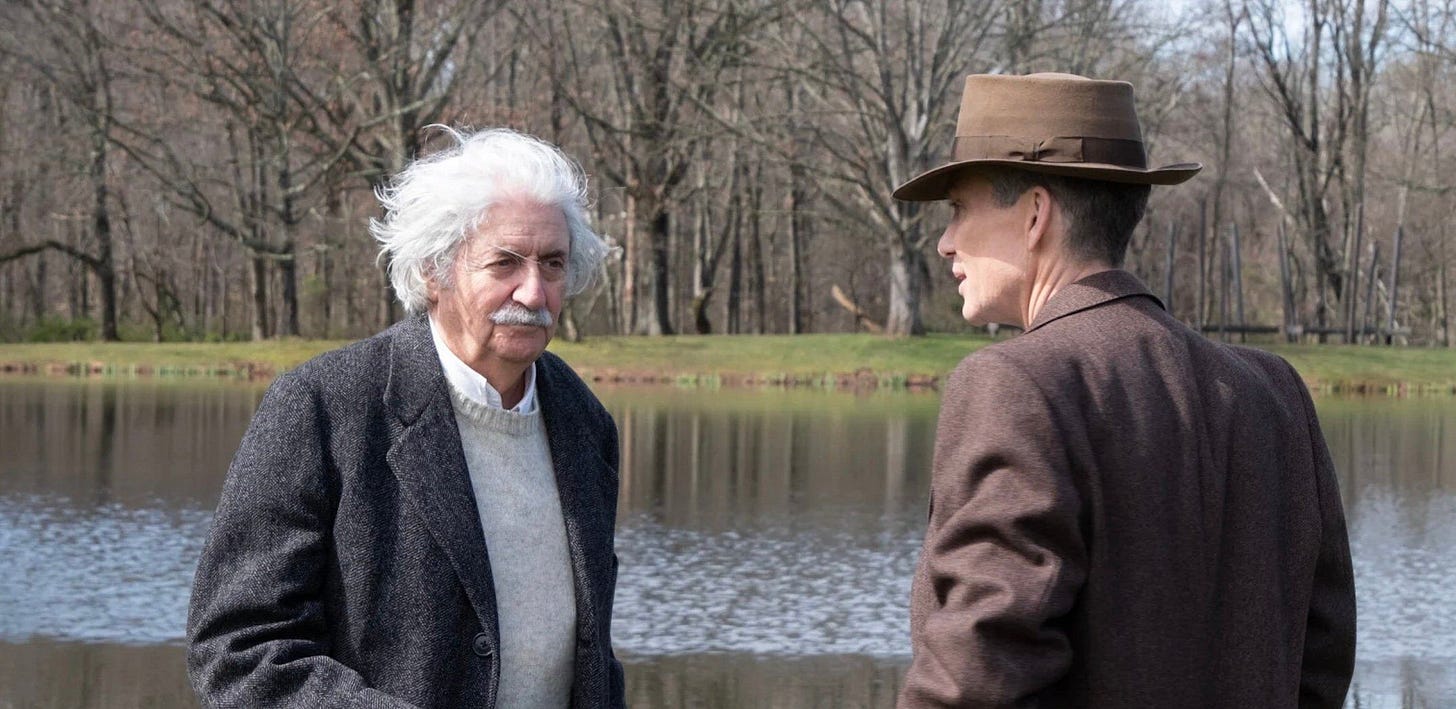I’ve seen Oppenheimer twice now, and, in a movie filled with haunting moments, the one I can’t seem to shake is the one at the very end where Oppy tells Einstein with stunned resignation that he believes he’s begun the chain reaction that will end the world.
As much as that closing moment floors me, it’s one just prior that is stuck in my head. Einstein foreshadows the true cost of Oppy acting on his conscience. He correctly predicts that his colleague will be cast out by those who have capitalized on his work, only to be celebrated much later.
“When they've punished you enough, they'll serve you salmon and potato salad, make speeches, give you a medal, and pat you in the back telling all is forgiven,” Einstein says. “Just remember, it won't be for you … it would be for them.”
Oppenheimer as a film is many things, and one of those things is the highest-stakes workplace drama you can imagine. Its titular character cuts a Steve Jobs-like profile with his genius and his ambition. Unlike Jobs, he has many masters to whom he must answer. There are generals and politicians, each and every one of them using his genius to accomplish a goal that Oppy mistakes as being shared. Part of the tragedy of J. Robert Oppenheimer is that that genius and ambition he possessed in equal parts blinded him to what was really happening around him until it was too late. He was tolerated for exactly as long as he was useful, and then the moment he wasn’t he was crushed by bureaucracy, by his inability to see the game he was playing in concert with his work. Promethean, indeed.
Hiyao Miyazaki’s The Wind Rises shares more than just an era in common with Oppenheimer. Its hero - Jiro - is a hopeless idealist, much like Oppy, just minus a few of his demons. He wants to build beautiful airplanes. Unfortunately for him, the pre-war Japanese government is the only vehicle through which he can do so, and so his talents also end up being used for death and destruction. Jiro ends up looking to his dead wife for consolation - for a path forward - searching, probably in vain, for answers in the clouds.
Perhaps the dots I should be connecting between these two should converge on the military-industrial complex, but I can’t help but linger on these two men and what they missed by fixating so exclusively on their dreams. Beware the people around you who promise to help you fulfill your dreams on their terms. These aren’t likely to be your dreams at all in the end.



